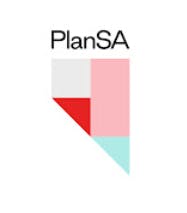Limestone Coast Regional Plan Visioning
Consultation has concluded. Thanks for your contributions.
We are seeking stakeholder feedback to help inform the development of a new Regional Plan for the Limestone Coast.
What's being prepared?
Regional plans play a significant role in identifying land use and long-term infrastructure needs to support sustainable growth within the regions of South Australia. They highlight how these important changes can be accommodated over a 15 to 30-year period, by investigating and guiding:
- where houses and employment land will go
- how housing and population will be serviced
- what infrastructure is needed and how it will be provided; and
- different growth scenarios (and implications for these scenarios).
To help guide the development of the draft Limestone Coast Regional Plan, we want to hear about what issues and opportunities you see for land use planning, infrastructure and the public realm, as well as what you think is needed to support sustainable growth within the region.
The South Australian Planning Commission (the Commission) will work collaboratively with council, key stakeholders and the community throughout the preparation of the draft Limestone Coast Regional Plan to identify the vision and priorities for the region, and to complement the range of strategic work already completed or being undertaken by council.
Background
In initiating the development of a new regional plan for the Limestone Coast, the Commission has identified that the new plan will include:
- a long-term vision for the region, along with supporting targets and actions for land use, transport infrastructure and the public realm
- maps and spatial plans that are relevant to the vision and priorities
- contextual information about the region, including forward projections and statistical data and analysis.
- recommendations about the application of the Planning and Design Code in the region, including future zoning and infrastructure needs, and how land can be developed
- identification of sufficient land to support housing diversity, affordable living and employment growth
- clear principles for orderly development and the management of growth, including a hierarchy of plans to guide the form and intensity of settlements and the prioritisation of release of urban lands
- a framework for the public realm or infrastructure located within the region; and
- performance indicators and targets to measure success in implementing the plan.
Get involved
You can influence the development of the draft Limestone Coast Regional Plan by contributing to the following matters:
- Shaping the vision for the Limestone Coast over the next 30 years
- Providing relevant background or history; and
- Identifying and defining regional priorities, as they relate to land use planning and the coordination of infrastructure and the public realm, including:
- transport networks (road, rail, port, aviation)
- electricity
- water
- community infrastructure; and
- potential areas for zoning/land use change.
Find out more
Have your say by:
- taking our survey
- sharing a comment, identifying an opportunity or flagging a challenge for the region on the interactive map.
What are the next steps?
At the conclusion of this initial phase of engagement, a report will be prepared for the Commission that outlines the range of feedback received during the first phase of engagement.
It is expected that a draft Limestone Coast Regional Plan will be released for consultation in late-2023.
Stakeholders and the community will have the opportunity to provide feedback on the draft plan, prior to the regional plan being presented to the Commission for final endorsement.




